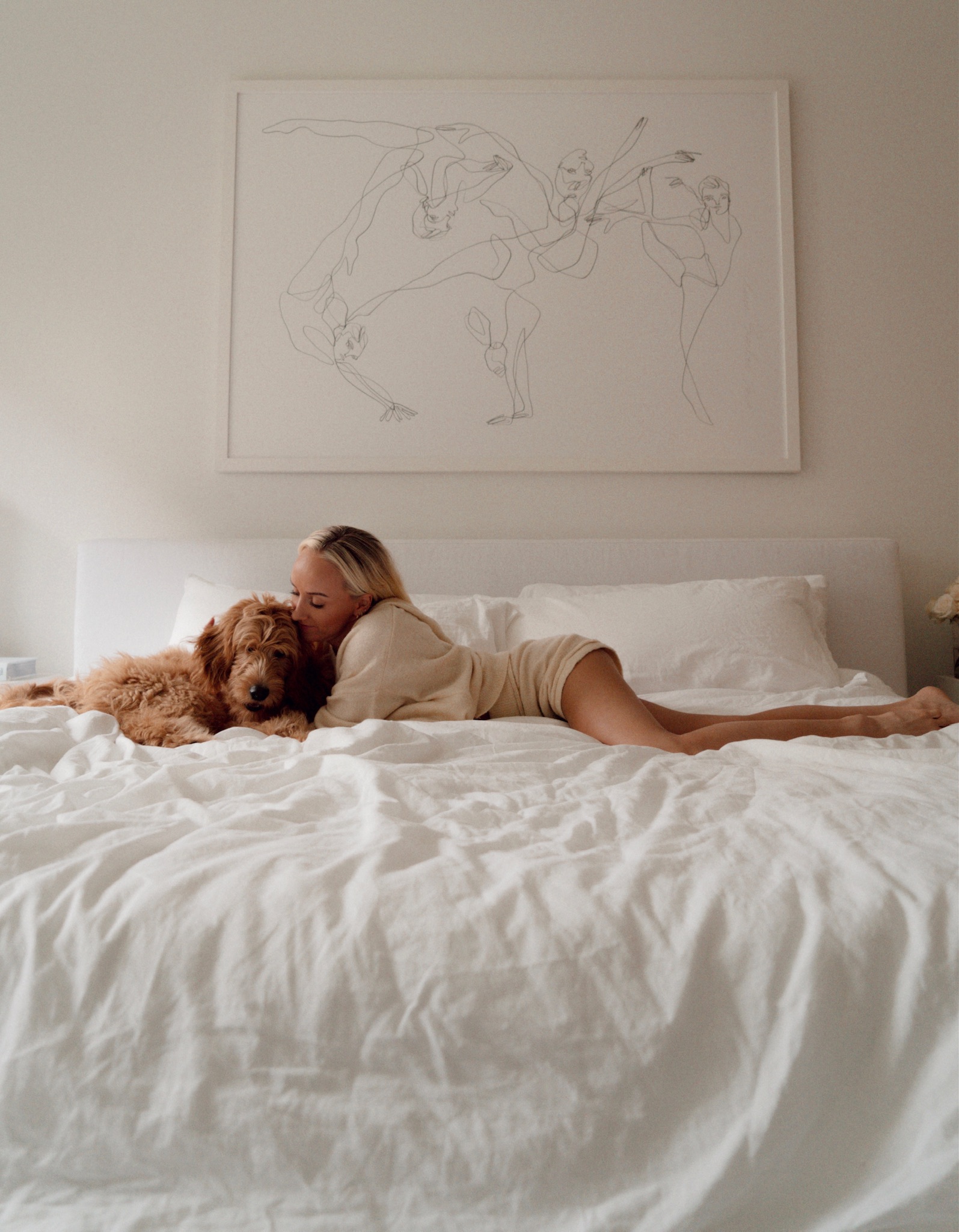If you follow me on Instagram, you know that Harley is my LIFE! He’s (one of) the best things to ever happen to me, and I’m so happy to be his dog mom every single day. Pandemic puppies were a THING. Like, I couldn’t scroll through Instagram without seeing a new puppy pop up on my feed. And the cuteness! Don’t even get me started. What’s not shown on Instagram, though, is what it’s actually like to have a puppy. Guys, let me be the first to tell you if no one has told you yet: IT’S HARD AF.
If you’re a new dog owner like me, you probably had pets growing up. And, you just remember the good times! The snuggles, the constant companionship, and maybe the occasional leaping up onto the counter to bite into the Thanksgiving turkey. But, for the most part, you don’t remember the stress, right? It’s likely because your parents dealt with it all, and since it was such a long time ago since you had a true puppy, you haven’t heard about those stressors.
So, let’s dive into what it’s really like to have a puppy—the stuff they don’t tell you (or, the stuff they do tell you but you choose to ignore because you already have your heart set on getting a dog). Again, I love Harley more than life itself (and wouldn’t change a thing about him coming into my life), but I would have benefitted from a more concrete understanding of what I was getting myself into!
1. Puppies don’t sleep through the night.
Unless you get a dream angel puppy, it likely won’t sleep through the night until about four months in. Puppies physiologically cannot hold their bladders overnight up to a certain age, so you’ll need to be getting up throughout the night to let your pup out. If you live in an apartment, that means trekking down the stairs at 2 in the morning, in the winter, in the PITCH dark, to let them do their business. If you’re pee pad training, it might be a bit easier to offer a mid-night bathroom break, but don’t plan on any sound sleeping for the first few months.
2. Puppies don’t know how to walk on a leash instinctively.
Is it me, or did everyone think dogs were born knowing how to walk on a leash, haha? NOT true. On top of the difficulty that is getting your pup to go to the bathroom when you want and need them to, walking on a leash is a whole different skill to learn. Harley was a bit tough to train in this department, and often bit the leash (and me!) while we walked. When you think of having a dog, you think of those glorious, relaxing post-work strolls—but those come with time. Brad and his incredible trainers at Bevill Dog Behavior really helped Harley with this skill (which we will be sharing some more about very soon – stay tuned on that on my IG) and I cannot thank them enough.
3. Puppies bite. A lot.
I can tell another puppy owner from a mile away—their forearms are torn up, their clothes have tiny little holes on the sleeves and pant legs, and they have dark circles from no sleep. Puppies have SUPER sharp teeth, and until they fall out, it’s likely that your pup will at least “mouth” you, if not straight up bite! It can be very painful (and discouraging), but this is one of the most important redirection skills your pup will learn. Always replace your arm/clothes with a toy! If you get your puppy too early in its life, it may have no learned bite inhibition—in other words, its littermates didn’t get a chance to signal to him, “Ow! That bite was too hard,” which teaches the pup what’s OK and what is not. Puppies bite/mouth out of frustration, boredom, pain (i.e., teething), and many other reasons. You just have to be equipped with the proper tools to redirect and indicate what is appropriate behavior.
4. It’s hard to tire a puppy out (and walks aren’t enough).
If you think that walking your puppy a few times a day will be enough to keep him at bay so you can get some work done, you’re wrong. Puppies need a lot more than walks—they need mental stimulation like one-on-one training with their handler and brain-testing toys in order to tire themselves out. It’s best to have a schedule for those early months (if not only to keep your own sanity) in order to make sure your pup is getting enough learning time, which, in turn, will allow you to have some relaxation time.
5. They eat their own vomit (and poop).
This is a normal thing for most puppies. They see their mom doing it to keep their den clean, and they follow suit. Most pups grow out of the behavior, but it can be, for lack of a better word, A LOT to try to discourage your dog from eating his own poop on a daily basis (especially in those early days when you’re using a pee pad). In addition to eating their own excretions, everything on the street or sidewalk is fair game. It’s a good idea to teach your dog “leave it” and/or “drop it” as early as possible, especially if you live in a city where bad things can be picked up by mouth.



